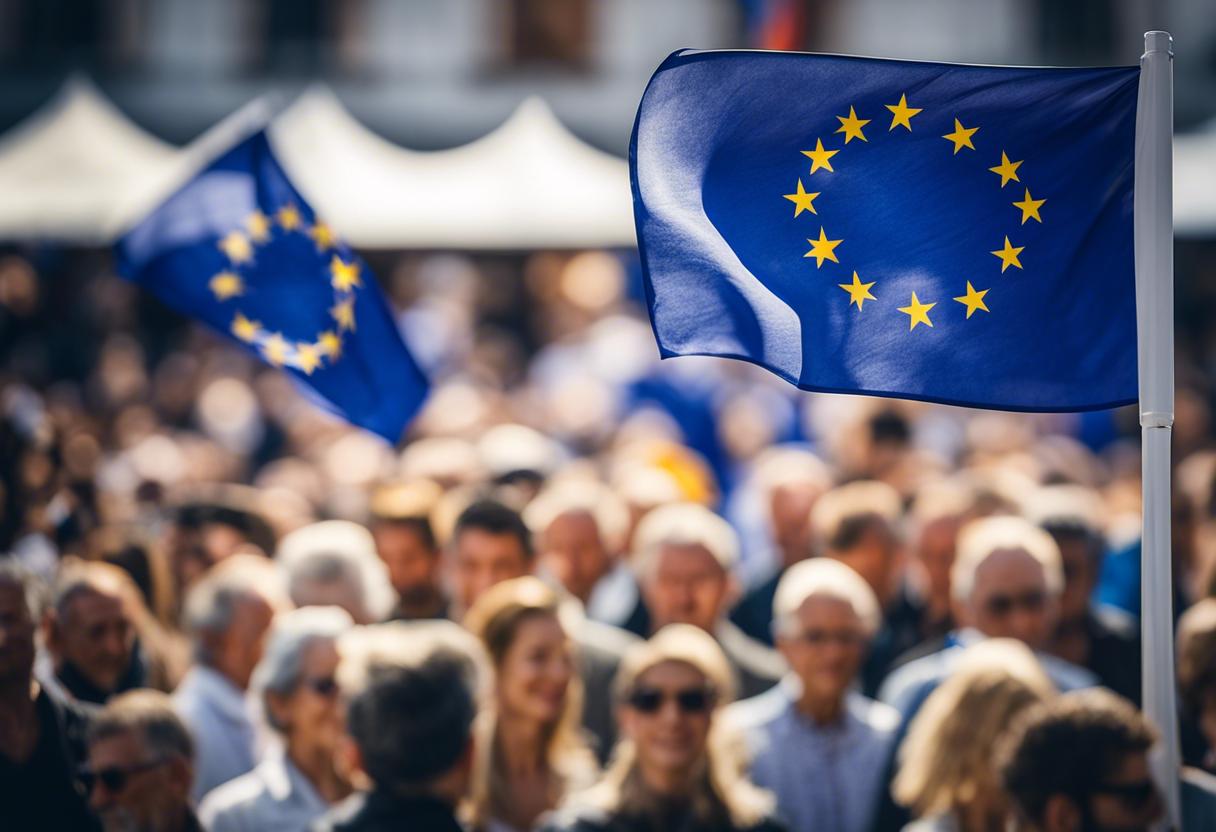This weekend’s European Parliament elections are expected to be a victory for the far-right parties. However, a variety of internal conflict and controversy could hamper the potential impact of the nationalist groups, offering some reprieve for mainstream parties that are anticipated to still secure a strong majority.
Voting rights for the parliamentary elections extend to around 360 million people across the EU, who will select 720 MEPs to form the upcoming five-year parliament. These Brussels-based representatives take on vital roles in adopting and editing EU legislation, including the crucial decision of the next European Commission president’s appointment.
This week, the Irish public will elect 14 members, drawn from 73 candidates distributed over Dublin, South Ireland and Midlands-North-West constituencies. The voting concludes on Friday evening, but the official results will not commence until Sunday night after all the EU polls have closed.
The campaign has encountered significant obstacles for Germany’s right-wing party, Alternative for Germany (AfD), which has experienced several issues in the past weeks. A range of scandals impacted the party, including a conference discussion on the planned deportation of asylum seekers and naturalised Germans and a bribery and spy scandal. These crises have tainted the image of the party’s lead EU representative, Maximilian Krah, and his deputy, Petr Bystron, a member of Germany’s parliament’s lower house. The AfD leadership requested both representatives to cease their campaigns, and the situation further deteriorated subsequently.
Marine Le Pen, the French nationalist, distanced her National Rally from AfD a fortnight ago after Mr Krah stated that not all Nazi SS paramilitary members were criminals, prompting the Identity and Democracy alliance in the European Parliament, which includes National Rally, to expel the German party.
Unlike Italy’s premier Giorgia Meloni who successfully launched Italy’s extreme right Brothers of Italy into the political mainstream, AfD’s co-leader Alice Weidel has struggled to achieve this transition. There also remains uncertainty about whether AfD will be welcomed into a political group within the freshly elected EU parliament.
Due to a chain of unfortunate events, the AfD has experienced a slowdown in its popularity, as evidenced by recent polls. The latest EU national poll conducted by the Insa institute records a decrease from a high of 23% last July to 16% on 1st June. Nonetheless, it still holds the runner-up position in terms of popularity in Germany, surpassing Chancellor Olaf Scholz’s Social Democrats.
Assessments suggest that the ID will secure 68 seats in the European Parliament minus the AfD, as per an average from polls curated by Europe Elects. This is a fall from the previous December’s forecast, where they were thought to be on course for 93 seats.
Despite the anticipated rise by the polls, European officials have doubts over whether this could trigger the foreseen right-wing wave. In the Netherlands, which voted on Thursday, Geert Wilders’ far-right party only managed to achieve second place, as revealed by early exit polls, partly due to low voter turnout among his supporters.
Seven political factions currently exist in the parliament, with the centre-right European People’s Party (EPP) being the largest. This alliance, comprised of 84 parties from 44 countries, includes the commission president Ursula von der Leyen as a member. Together with the Socialists and central-liberal Renew, they form the majority in the chamber, though their lead is expected to decrease.
The far-right’s success, in terms of seats obtained as well as potential alliances formed, will determine the implementation of their policy agendas. Notwithstanding their diverse polices, Europe’s right-wing parties tend to align on issues such as limiting migration into the EU, diluting centralised control on rule-of-law matters and opposing European initiatives designed to mitigate climate change.
The allocation of significant EU positions will be a critical aspect of the election. The norm is that the group acquiring the most seats secures the role of commission president, with the EPP’s Ms von der Leyen still at the forefront.
During her campaign in Porto, Portugal this week, she urged for a “strong majority in the political centre – pro-EU, pro-Ukraine, pro-rule of law,” to fortify Europe. She expressed her determination to withstand any division efforts by far-right and far-left extremists.
Ms von der Layen’s bid for a second term is contingent on the approval from parliament, with her previous success scraping by a narrow margin of only nine votes. She has hinted at a potential lean towards the right in the EU policy by demonstrating a willingness to collaborate with segments of the ECR group, which counts Ms Meloni amongst its members. Various national figureheads, including Germany’s Mr Scholz, have cautioned her against soliciting the backing of popularist factions.
“Always, a commission president should depend on Europe’s democratic parties, encompassing the Social Democrats, the Conservatives, the Liberals,” stated Mr Scholz earlier this week, “There should be no involvement whatsoever of extreme right or right-wing populist groups.” – Bloomberg.

